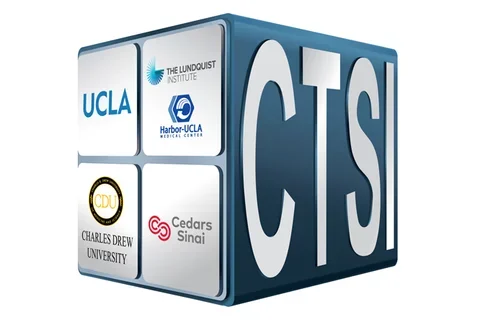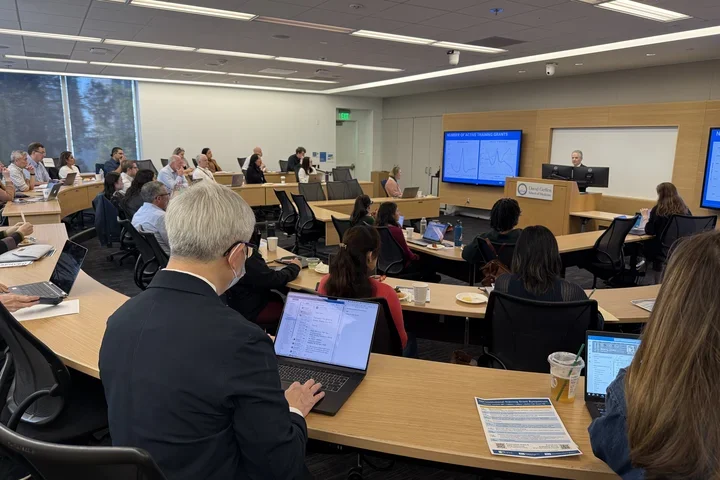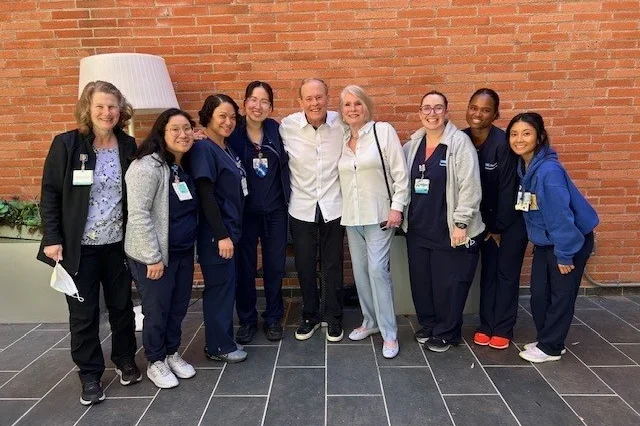Seven cross-disciplinary teams receive seed grants

Reflecting an emphasis on collaboration and innovation, researchers from medicine, engineering, life sciences, physical sciences and dentistry, are among the recipients of the David Geffen School of Medicine at UCLA’s 2018 Seed Grant Program.
Co-funded by CTSI, the seed grant program provides multidisciplinary teams with the funds they need to obtain preliminary data that will enable them to compete for large team science grants from federal agencies and private foundations.
“High-impact scientific advances need the diverse expertise found in multi-disciplinary teams of investigators,” said Steve Smale, vice dean for research in the David Geffen School of Medicine at UCLA. “But forming such teams isn’t always easy. Researchers have to actively reach outside of their comfort zones and connect with colleagues in a different discipline, in different career stages or across the basic/translational/clinical/community research spectrum.”
It’s important that they do so, because large team science grants from government agencies and private foundations often require evidence that a team has already established productive interactions.
“The seed grant program this year was looking to support opportunities to essentially kick-start that process,” Smale said.
The program is a collaboration among the Unified Research Themes within the medical school, the Institute for Precision Health and the UCLA CTSI, which together with a generous gift from the Spitzer Family Foundation are co-funding all of the awards.
Applications for the grants, now in their second year, were open to the entire UCLA campus, as well as L.A. BioMed.
The 2018 Seed Grant Program awards totaled $2 million. They will support the following projects:
- Cancer Theme: Development of a central nervous system metastasis program at UCLA. Robert Prins, Dr. Won Kim, Dr. Siwen Hu-Lieskovan.
The goal is to develop a scientific program focusing on the study of central nervous system metastases. The project will bring together medical oncologists, scientists and surgeons to identify the key genetic and immunologic differences among primary solid tumors, central nervous system metastases and malignant gliomas.
Cardiovascular Theme: Using stem cell modeling and optical approaches to identify therapeutic strategies for heart failure. Dr. Arjun Deb, Eric Chiou, Dr. Michael Teitell, Michael Jung.
Heart failure results from the inability of the heart to either contract (systolic heart failure) or relax (diastolic heart failure or heart failure with preserved ejection fraction, known as HFpEF). While significant advances have been made in managing systolic heart failure, there currently are not any therapies for HFpEF, which accounts for more than 50 percent of all cases of heart failure. The researchers — comprising experts in cardiology, cell biology, bio-engineering and medicinal chemistry — will create technologies to measure heart muscle relaxation rates in a human stem cell model of heart failure. These technologies will be used to screen hundreds of drugs to identify new drugs to HFpEF in humans. - Immunology, Inflammation, Infection and Transplantation Theme: Combating infection in the bone microenvironment: A multi-faceted approach to subvert antimicrobial resistance. Dr. Nicholas Bernthal, Jeff Miller, Dr. John Adams, Gerard Wong.
Bacterial infections in bone and on surgical implants are at the front line in the war against antimicrobial resistance. This work aims to leverage UCLA CTSI transdisciplinary expertise to: model the bone microenvironment with microfluidic devices; expand our mechanistic understanding of bacterial evasion of host immune response by “hiding” in bone canaliculi; and advance novel antimicrobials aimed at these escape mechanisms.
Metabolism Theme: Multi-omics approaches to understand non-alcoholic fatty liver disease. Jake Lusis, Adriana Huertas-Vazquez, Dr. Jussi Pihlajamäki, Samuel Canizales-Quinteros.
The researchers have studied traits associated with non-alcoholic fatty liver disease in a panel of diverse strains of mice using a “systems genetics” approach that integrates clinical and high throughput molecular data. This has resulted in the identification of chemical reactions highly enriched for mitochondrial functions. Based on these results, the researchers hypothesize that mitochondrial dysfunction underlies the human disease. They will test this in human patients, including a large cohort of Mexican bariatric surgery patients for which liver and adipose samples are available. The goal is to develop therapeutic strategies and identify non-invasive biomarkers for early diagnosis and treatment of NAFLD.
Neuroscience Theme: Unraveling astrocyte contributions to epilepsy in humans. Ye Zhang, Dr. Gary Mathern, Baljit Khakh.
Epilepsy is the most common neurological disorder, affecting more than 3 million Americans of all ages and ethnic groups. Although traditional epilepsy research has been focused on neurons, how non-neuronal cells may contribute to epilepsy remains mysterious. This team recently developed technologies to isolate and study non-neuronal cells. It will study changes of non-neuronal cells in epilepsy patients and potentially leverage this knowledge for developing new drugs for epilepsy.
Precision Health Theme: Machine learning models for the prediction of adverse outcomes after surgery using electronic medical records and genetic data. Eran Halperin, Sriram Sankararaman, Dr. Ira Hofer.
The researchers aim to leverage the UCLA AtLAs project, led by the Institute of Precision Health at UCLA, in which 150,000 UCLA patients are expected to be genotyped in the next few years, to develop machine learning models for the prediction of acute kidney injury, one of the most common surgery complications, using data from the electronic medical records in conjunction with genomic information from the patient. As a means to achieve this objective, researchers will measure whole-genome methylation of at least 500 Latino patients and incorporate these into the model, resulting in improved models of surgery complications. A successful completion of the project will result in improved prediction of postoperative kidney injury, and it will shed light on the importance of genetics and methylation data on such predictions, in both the Latino population and the general population.
- Regenerative Medicine Theme: Diet and development: impact of diet-regulated nutrients on stem cell metabolism, cell fate, and the chromatin and transcriptional state. Kathrin Plath, Heather Christofk, Bill Lowry.
Many nutrients display large fluctuations in their circulating levels in the blood depending on diet, which in turn can influence the metabolic state of cells exposed to those nutrients. The goals of the proposal are to define the nutrients that fluctuate in fetal blood, identify which of these can alter developmental processes, and begin to understand how such nutrients mechanistically act to stem cell function and development. By studying the influence of diet-controlled nutrients on developmental processes, the data will be directly relevant not only to the understanding of basic human biology but also to human health, with the potential to provide new paradigms for disease prevention.
Image source:
Image caption:



